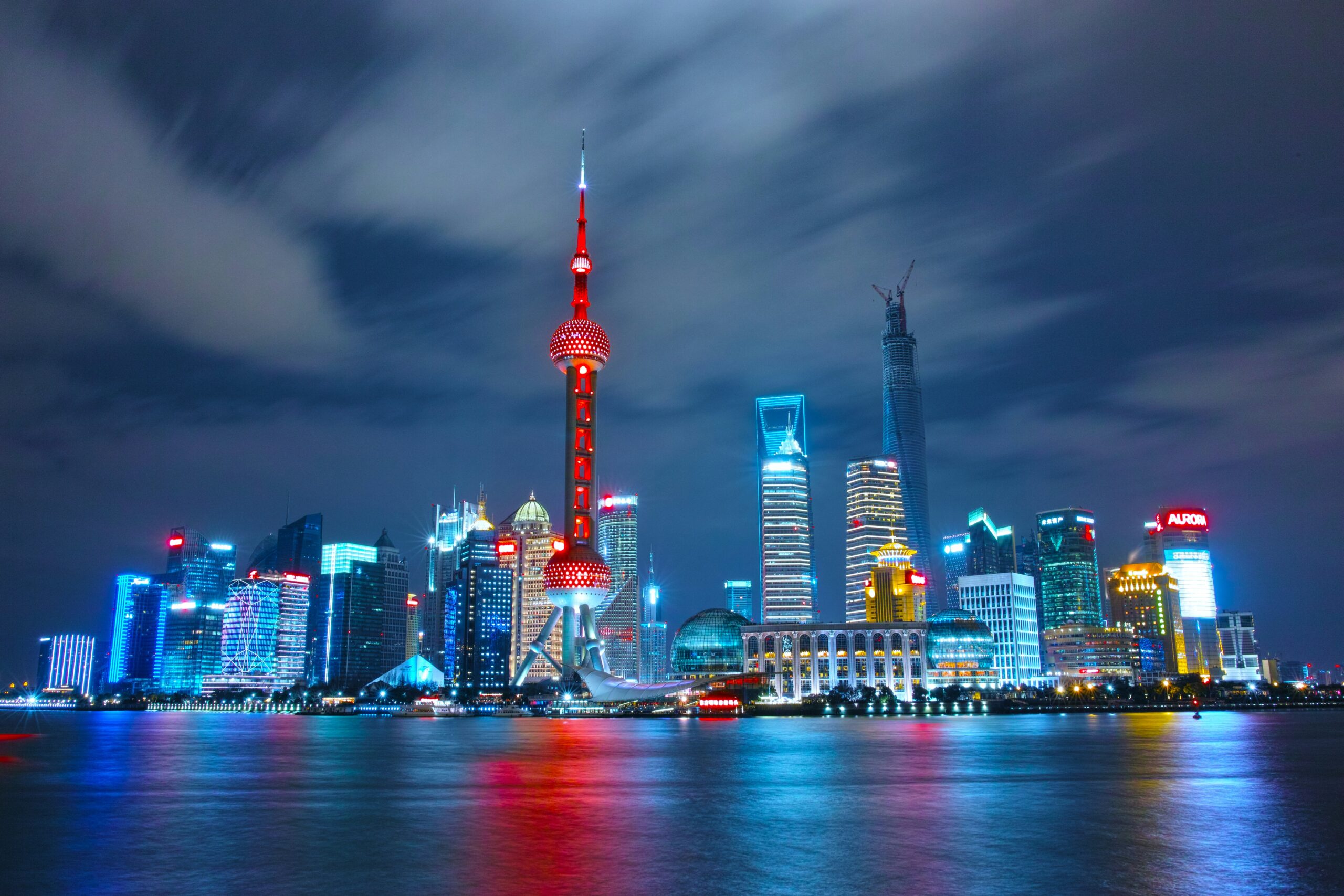In the dynamic landscape of global technological innovation, China is a frontrunner in innovation, with strengths in creative goods exports, domestic market scale, and labor productivity growth. Even though the consequences of slow economic recovery, rising interest rates, and geopolitical conflicts are revealed in the 2023 Global Innovation Index (GII) released by the World Intellectual Property Organization (WIPO), China still performs well compared to other countries. China ranks 12th among the 132 economies featured in the GII 2023 and 1st among the 33 upper-middle-income group economies. From cutting-edge advancements in artificial intelligence to pioneering approaches in the solar industry, initiatives, and innovation scouting in China resonate across industries and reverberate on the global stage.
What are the drivers behind China’s global leadership in innovation?
What keeps China at the forefront of the global stage? Delving into the factors driving China’s leadership in innovation, it can be divided into two key factors. Firstly, China’s robust policies actively foster advancements in innovation and economic efficiency. Secondly, the intense competition drives an accelerated pace of innovation.
Government policies supporting innovation
‘’Made in China 2025’’ Initiative
The Chinese government has set out a “Made in China” growth program and aims to have 10,000 startups in key sectors of the economy by 2025. As of 2022, China had reportedly identified a total of 8,997 such companies. Transitioning from supporting industrial giants to fostering innovative solutions, the government’s policies have paved the way for small and medium-sized high-tech enterprises to flourish not only domestically but also in international markets. One successful example is Gan & Lee Pharmaceutical Co. Ltd., which developed a domestically produced insulin analog and penetrated 14 major foreign markets with its product.
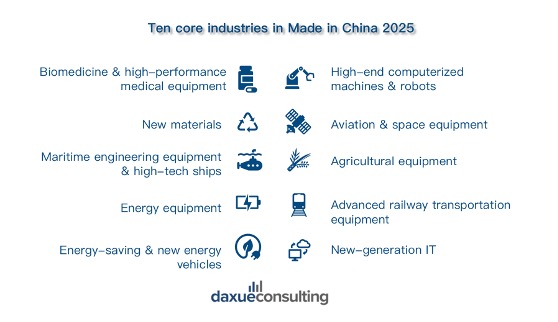
Source: State Council of China and MERICS, designed by Daxue Consulting, core industries in Made in China 2025
Mass entrepreneurship and innovation demonstration base
In 2015, the Chinese government started promoting the building of mass entrepreneurship and innovation demonstration bases. This initiative aims to cultivate an environment conducive to innovation, akin to an incubator model, where entrepreneurs and innovators explore the needs of their target audience for products and solutions. These inventors receive comprehensive support services, including access to angel and venture capital, to fuel their ventures. At the end of 2022, there were 212 such platforms nationwide.
Despite the challenging economic environment and the fall in investment globally, China continued to attract significant investment in 2022. Approximately RMB 54 billion was injected into China’s biotechnology and pharmaceutical sectors. Moreover, in April 2022, the Chinese fast-fashion company Shein raised USD 1.5 billion in a new financing round, boosting its valuation to USD 100 billion. Similarly, in October 2023, the China-based electric vehicle company GAC Aion New Energy raised approximately USD 2.5 billion in Series A funding.
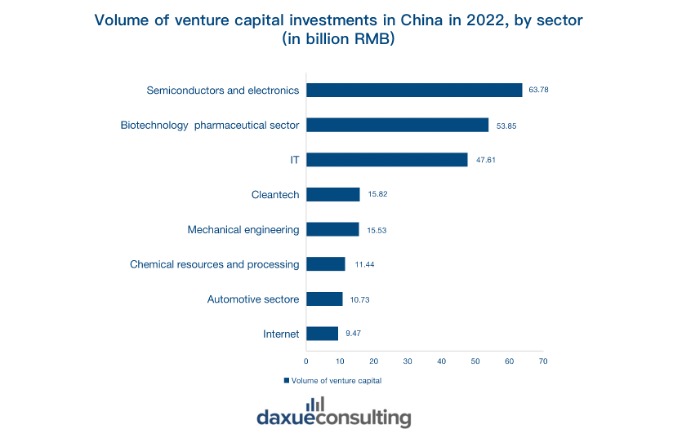
Source: Statistia, designed by Daxue Consulting, the volume of VC investments in China, 2022
High market competition
Moreover, the intense competition must drive the rapid pace of innovation in China. Many Western companies are at the forefront of technology, but Chinese companies are also catching up. A manager of a foreign company in China once lamented that Chinese products have twice the number of functions as Western products, but the price is only half. These multi-functional products are a typical result of Chinese innovation. Although there are no radical innovations, they bring important value to consumers at a lower price.
For example, Huawei has developed many world-class new technologies (such as LTE technology); BYD relied on reverse research and development to successfully transform from a battery manufacturing company to a leading electric vehicle company. Some domestic companies have extended their product innovation to business models innovation to penetrate all aspects of people’s lives.
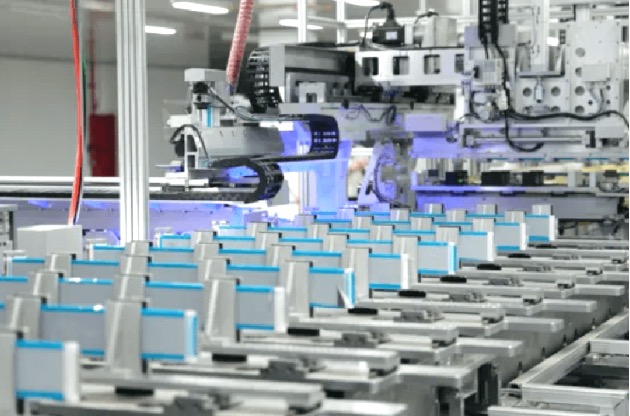
Source: BYD official website, World’s Biggest Iron-Phosphate Battery Factory
Moreover, with its vast population, businesses face significant competition and receive critical feedback from users, which is a good way for them to keep improving. This environment compels companies to adopt a lean startup approach, emphasizing quick iteration and learning from real-world experiments. Many Chinese companies will test the market through repeated rapid experiments, error corrections, and adjustments. For example, through rapid trial and error, Alibaba successfully launched new products such as Internet finance and digital health, and also decisively eliminated some failed products, including “Laiwang(来往)”, a chat tool that competed with WeChat.
A closer look at China’s industries
China is the world’s fastest-growing and most vibrant market for emerging digital technologies. With over 1.05 billion internet users and a dynamic consumer economy, China is undergoing rapid and large-scale deployment of emerging technologies, including 5G, advanced artificial intelligence, and blockchain-based technologies. The added value of the digital economy in Beijing reached RMB 1.406 trillion in the first three quarters of 2023, accounting for 44.3% of the GDP.
China’s dominance in the solar industry
China dominates the global market as the primary exporter of solar panels and related solar products. This leadership position is attributed to its efficient manufacturing processes, the establishment of specialized industrial clusters, and substantial governmental support for the solar industry. As a result, China, which possesses 29% of the world’s renewable energy patents, stands as the unrivaled powerhouse in the photovoltaic sector on a global scale.

Source: CGTN, A photothermal power plant with 12,000 heliostats surrounding a 260-meter-high heat-absorbing tower is in construction in Jiuquan City, northwest China’s Gansu Province
China’s role in unicorn companies and the formation of industry clusters
Furthermore, China contributes to half of the global e-commerce transaction volume and hosts 9 out of the 23 private financial technology unicorn companies worldwide. Besides this industry, unicorn companies are also concentrated in e-commerce, medicine, and high-precision equipment. The top unicorn companies in China are Bytedance, Shein, and Xiaohongshu. China shows an outstanding performance in artificial intelligence, e-commerce, and direct-to-consumer sales.
Due to the development of unicorn enterprises, China has formed multiple industry clusters. For instance, the Yangtze River Delta region is the hub for semiconductor and new energy industries. In the southeastern region, unicorn enterprises show a preference for new consumption, retail, and e-commerce. As for the Greater Bay Area (Guangzhou, Shenzhen, and Hong Kong), it excels in financial technology, e-commerce, high-tech manufacturing, and pharmaceuticals.
China completes turboshaft engine icing airworthiness test
According to news released by China Aviation Engine Group on January 29, 2024, China successfully completed the icing airworthiness test of the entire turboshaft engine. This marks an important breakthrough in China, which independently developed the AES100 advanced civilian turboshaft engine, filling the gap in domestic turboshaft engine airworthiness technology. The AES100 engine is the first civilian turboshaft engine in China that is completely independently developed and has reached a contemporary, internationally advanced level. After this success, the AES100 engine will continue to undergo multiple airworthiness tests and will provide power for various types of aircraft, such as civil helicopters and drones.
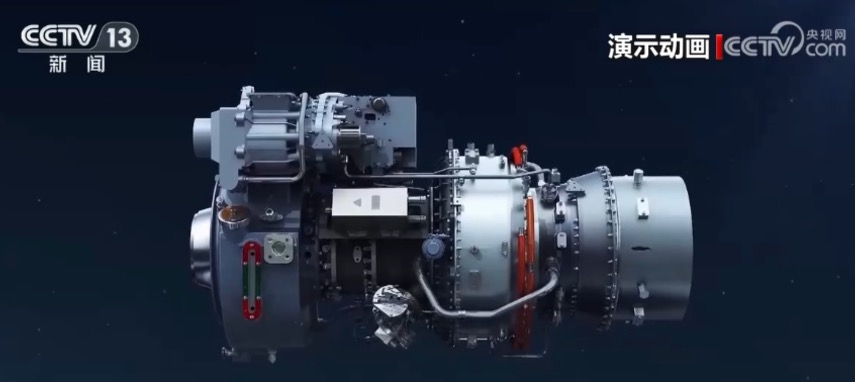
Source: cctv.com, AES100
Case study: Xiaomi’s game-changing electric vehicle, the SU7
A significant recent development in China is the introduction of Xiaomi’s latest product: the Xiaomi SU7. This marks a bold step forward in the electric vehicle sector, demonstrating the innovative prowess of Chinese manufacturing.
Lei Jun, the visionary founder of Xiaomi, has made a bold foray into the electric vehicle industry, embodying his innovative spirit across sectors. The introduction of the SU7 has sent shockwaves through the automotive industry. With specifications and pricing that defy conventional norms, the Xiaomi SU7, starting at RMB 215,900, disrupts the status quo by offering a premium electric vehicle at a competitive price point.
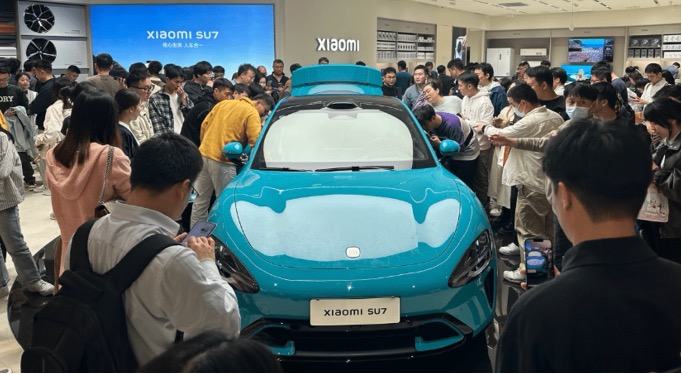
Source: carnewschina.com, Xiaomi SU7 at experience store in Beijing
Leveraging its expertise in smart home technology, Xiaomi has seamlessly integrated the SU7 with over 1,000 Xiaomi smart home devices. The SU7 boasts a spacious 16-inch infotainment screen and a 56-inch head-up display, ensuring that vital information is prominently displayed, underscoring its technological superiority.
Embracing endless opportunities
The landscape is teeming with prospects, from strides in artificial intelligence to eco-friendly technologies. As Hong Kong tech luminary David Lin aptly puts it, “The next chapter in China’s tech narrative is about co-creating a story of growth, innovation, and mutual respect.” With the dawn of a new era upon us, the journey ahead promises a blend of trials and triumphs. Leveraging the wisdom of thought leaders, there will be a future that not only shines brightly but collaboratively illuminates, demonstrating that through diverse collaboration and collective pursuit of excellence, the realm of possibilities knows no bounds.
Innovation horizons in mainland China
- China’s stellar performance in the 2023 Global Innovation Index (GII), ranking 12th globally and 1st among upper-middle-income group economies, underscores its unwavering commitment to innovation.
- Two primary factors driving China’s innovation leadership include robust government policies that foster economic efficiency and innovation, and the intense competition that accelerates the pace of innovation.
- Government initiatives like the ‘Made in China 2025’ program and the promotion of mass entrepreneurship and innovation demonstration bases provide a conducive environment for startups and innovators to thrive.
- China’s high market competition, fueled by its vast population and user feedback mechanisms, encourages companies to adopt lean startup methodologies and prioritize innovation, contributing to its global innovation prowess.
- Xiaomi’s entry into the electric vehicle sector with the SU7 represents a significant milestone in China’s automotive industry, showcasing the country’s innovative capabilities and disruptive potential in the global electric vehicle market.
- Industry giants like Huawei, Alibaba, Baidu, Tencent, and others have not only attracted numerous talented local experts but also are helping the Chinese economy grow at an unprecedented rate and influencing the global economy.
Strategic insights into innovation scouting in China
China’s rapidly evolving innovation landscape offers significant opportunities for businesses aiming to stay ahead. At Daxue Consulting, we provide expert analysis and strategic consulting for innovation scouting in China. Our insights help companies identify emerging technologies, and trends, and connect with innovative startups. Gain a competitive edge with our in-depth understanding of China’s dynamic innovation ecosystem. Let us support your business as you navigate and capitalize on this market.



